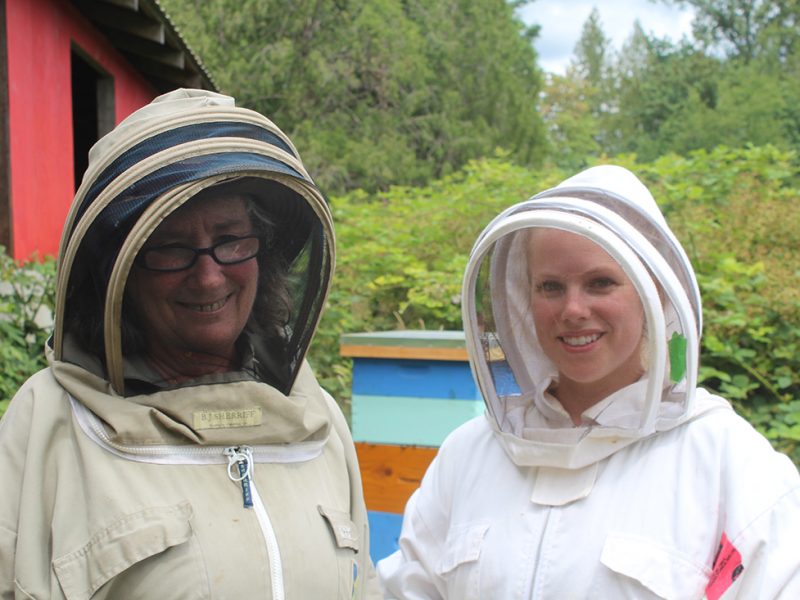BC bees won’t be resting on their laurels later this month as BC beekeepers head to Montreal for the international convention of apiarists, Apimondia. Vancouver hosted the event in 1999, and a healthy contingent of beekeepers will be heading east for this year’s conference.
Meanwhile, their bees will continue produce honey, something they’ve been happily doing this year despite initial reports of massive colony losses.
The annual spring colony survey saw participating BC beekeepers report winter losses of 31.9%, well above the national average of 25.7%. BC losses ranked second after PEI, where the Canadian Association of Professional Apiarists reported 54.1% of hives lost.
However, BC losses improved versus 2018, when 34.3% colonies didn’t make it through the winter.
A note to keepers this week from Kerry Clark, president of the BC Honey Producers Association, said more temperate weather this summer has meant good times for bees.
“My impression is that production will be good,” he said.
BCHPA’s support of stricter product labelling, and provincial funding for Chilliwack beekeeper Peter Awram’s work to build a database of domestic honeys using nuclear magnetic resonance (NMR) testing, is helping guarantee consumers’ confidence in the product.
Ramped-up testing by the Canadian Food Inspection Agency over the past year found that 23.5% of imported honeys sampled were adulterated. Honeys from Canada all tested as authentic.
“BCHPA strongly advocated for CFIA increasing their surveillance,” Clark said. “Although we didn’t receive a reply to our letter, it is somewhat satisfying to see that the new technology is being tested and found effective.”
Awram’s work has received $87,500 in funding administered by the Investment Agriculture Foundation of BC. The province also contributed $20,000 to send beekeepers to Apimondia
The province has also pledged a total of $450,000 to Bee BC, another program administered by IAFBC, which supports community programs to enhance bee health.


 New waste control rules kick in October 1
New waste control rules kick in October 1